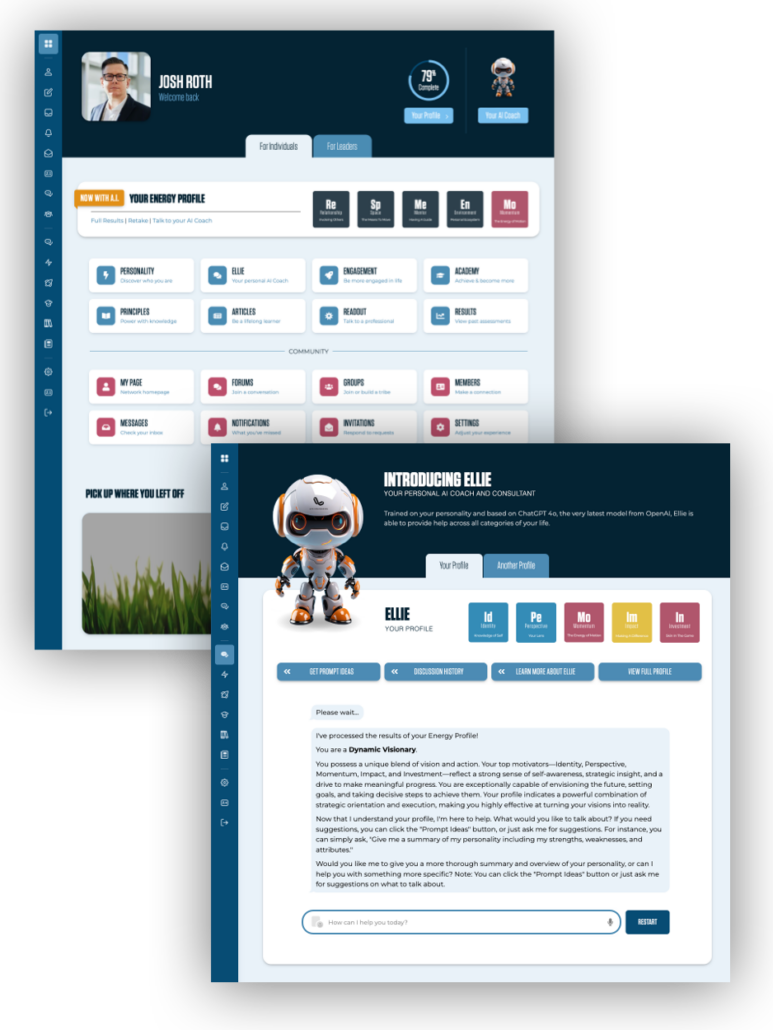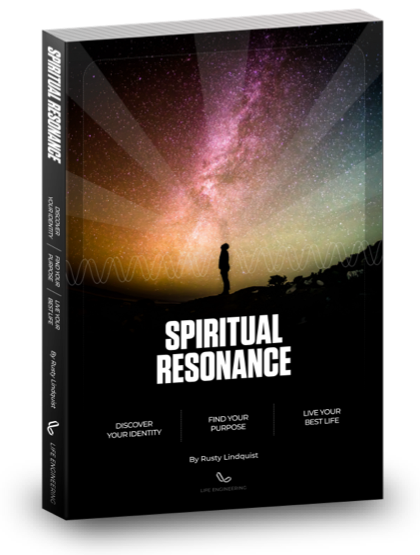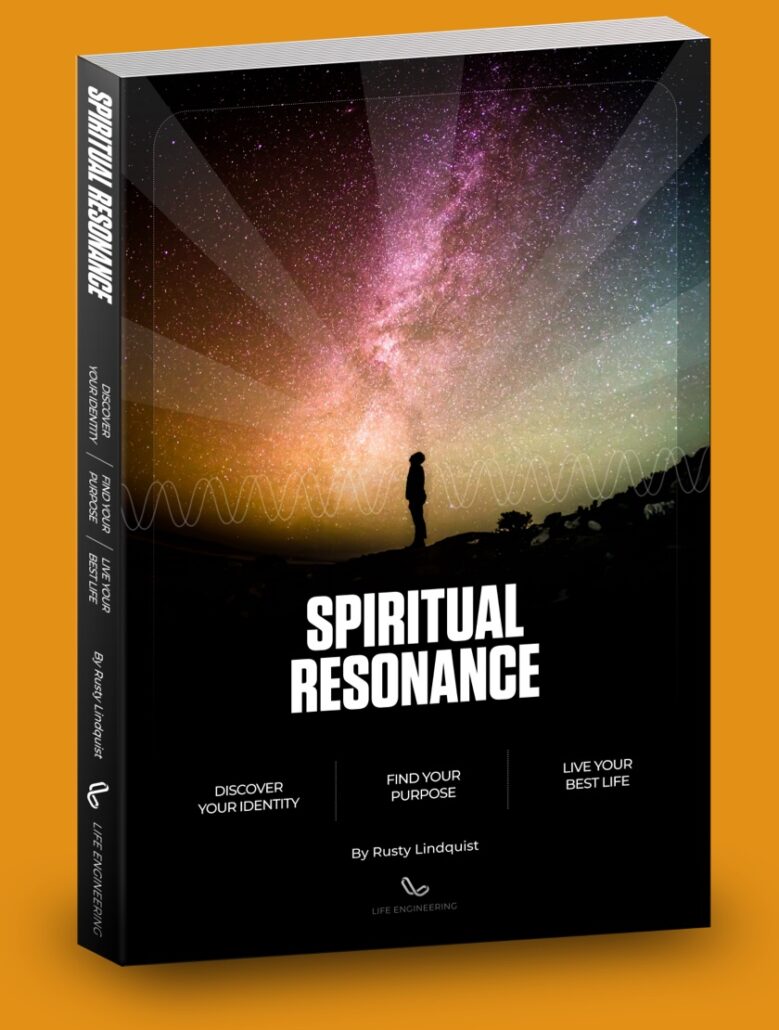Paired Elements for Leaders
Perspective and Identity
The Power of the Lens
academy
Lesson 1
INTRODUCTION
course objectives
- Become more aware of your own perspective on leadership and your identity around how qualified you are to lead. That awareness can lead to introspection and opportunities to make changes in how you see things and how that perspective is influencing your identity as a leader.
- Start to see how team members are “seeing” things like objectives, opportunities, challenges and failure and then guide your team through those perspectives.
- Start to shape individual and team identity by encouraging new perspectives within the team about who they are, what they are capable of and how they’re going to do great things both now and in the future.
- Create an environment that is safe for different perspectives and identities.
- Work with your team to connect these diverse perspectives and identities to the perspective, identity and objectives of the organization as a whole.
Perspective, Identity, and Leadership
Perspective and Identity are closely related.
What can you do as a leader to learn more about the relationship between perspective and identity?
Perspective and Identity in Teams
By the end of this course, you’ll be able to…
- RECOGNIZE how your perspective has shaped your identity.
- EVALUATE how your leadership is shaping how your team perceives new opportunities and challenges.
- DESIGN a simple plan to connect each team member’s IDENTITY with the opportunities the team needs.
Lesson 2
Diversity in Perspective and Identity
Our Identity is Inseparable
How we see ourselves informs who we are, and who we are influences how we see ourselves. We all have different experiences in life, and as we learn from the experiences and perspectives of others, our own perspectives can change.
reflection activity
Our Inseparable Identity
Think about yourself as a leader today. How has your identity been shaped over time?
Activity: Our Inseparable Identity
People Like Us
As a leader, being intentional about welcoming different perspectives, identities and experience is key to preparing for a diversity of opportunities.
Diversity of experience opens up new possibilities… but only if the leader has the humility to welcome and integrate other perspectives into a shared approach to a situation.
reflection activity
Diversity Exercise
As a leader, sometimes it is challenging to help the team navigate differences in perspective and identity. Consider your current team as you answer the questions below.
Activity: Diversity Exercise
Lesson 3
Inputs and Blind Spots
The Eye Gives Me a Cold Shudder
Each of us has a perspective and identity that shape the way we see the world. But we will all inevitably miss some things.
hat are the “blind spots” in your perspective as a leader, and who can help you overcome them?
reflection activity
The Eye Exercise
Take a moment to reflect on your own work as a leader and that of your team. As you answer the exercise prompt, consider how perspective and blind spots create both opportunities and costs.
Activity: The Eye Exercise
Blind Spots and Filling in the Gaps
Engaging with your team is the key to noticing and dealing effectively with your blind spots. Consider how your team can help you fill in the gaps.
Lesson 4
Looking Outside
War of the Stray Dog
One role of leaders is to help their teams understand the perspectives of others. Encouraging understanding of different perspectives will improve relationships between your teams.
Lesson 5
Instincts and Responses
The Real Great Fire of London
Our instincts and responses may be exactly right in one context and yet a poor fit in another circumstance. Understanding your team’s perspectives within and beyond the team will help you find the right response to a variety of situations.
reflection activity
The Great Fire Exercise
As a leader, how do you minimize the likelihood that a combination of strong Identities and flawed Perceptions could escalate into a major problem in your organization? Do you have a strong Identity as a team, and as individuals? Does your team question your perspectives? Is your team identity healthy, or would it benefit from a new perspective?
Activity: The Great Fire Exercise
Lesson 6
Group Perspective and Identity
Cult or Culture
Think about your company’s culture. Does the culture empower you to contribute in your own unique way or is everyone expected to share the same perspective?
reflection activity
Cult or Culture Exercise
Culture has a huge impact on the engagement of the individuals within an organization. Does yours improve or degrade engagement?
Activity: Cult or Culture Exercise
Lesson 7
What Were They Thinking?
The Power of If / Then
We each have different needs that influence our behavior and experiences. How are these needs shaping your perspective and identity? What about your team?
reflection activity
If / Then Exercise
Because what seems acceptable, or at least passable to one person, may be completely incomprehensible to another, it’s natural to think about why other people respond differently in the same situation on the same team.
Keep in mind the basic human needs as you answer the questions below.
- To Live or Survive
- To Love
- To Discover
- To Progress
Activity: If / Then Exercise
Lesson 8
The Power of Ritual
My Shadow Self
The repetition of certain habits, thoughts, and behaviors shape our identity.
How intentional are you about your work habits, thoughts, and behaviors? How can you assist others to positively shape their identities?
reflection activity
Shadow Self Exercise
Commit to holding one-on-ones with your team. If you’ve fallen out of the habit or find it easy to cancel them, lock them in your calendar and make them a priority. Go through the example identity questions below, answering for yourself so you can better ask and understand them with your direct reports.
Activity: Shadow Self Exercise
Lesson 9
Self-Portraits
A Portrait is Something You Make
Leaders can encourage their team members to take intentional control of their Identity and Perspective. Much like children choosing how to create their own self-portraits, we have a similar opportunity—to make our own living, evolving “self-portrait.”
reflection activity
Portrait Exercise
Using the canvas of your imagination, consider your “self-portrait.” What elements would you want to highlight in your own self portrait? How do you think your team sees themselves individually? Collectively? If there was a part of your team identity you could change, what would it be? How could you reshape a perspective held by yourself or the team to positively influence the change you would want to see?
Activity: Portrait Exercise
Lesson 10
Conclusion
Perspective and Identity Conclusion
As a leader, you have the opportunity to help your team connect with a deeper understanding of their own perspectives and identity. This will allow them to find greater resonance with their work, team, culture, and larger organizational goals.
We care deeply about helping you live your best life.
So much so, that I want to give you a free copy of my most recent book, Spiritual Resonance, to help you fully discover yourself and live authentically.
We’ve also created an assessment to help you discover your Identity, and have trained AI to understand and talk to you about your specific results!




Responses